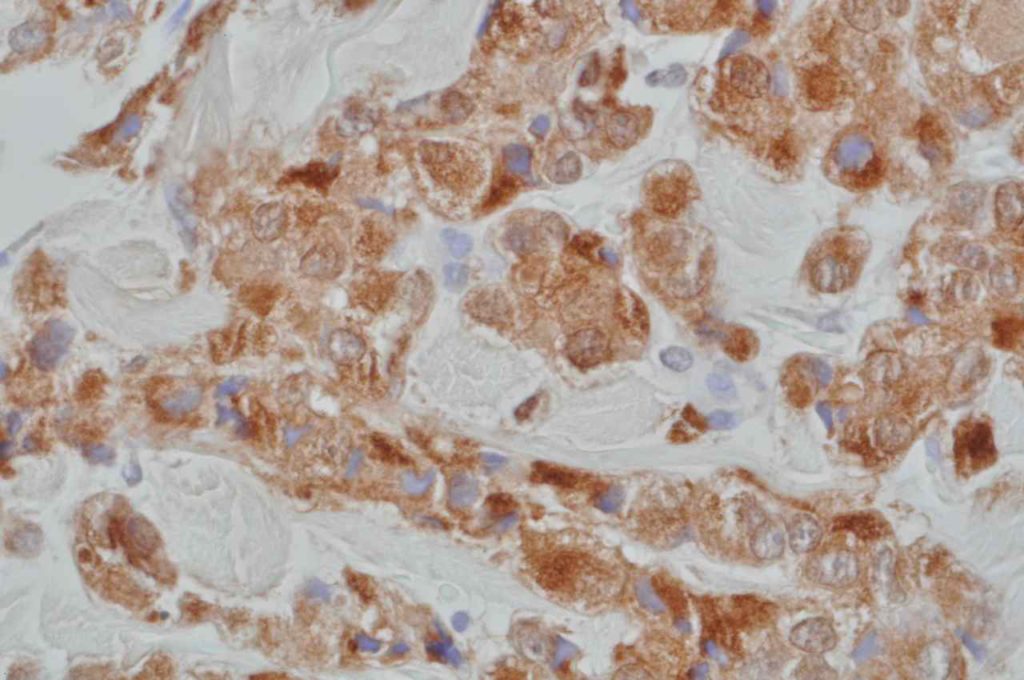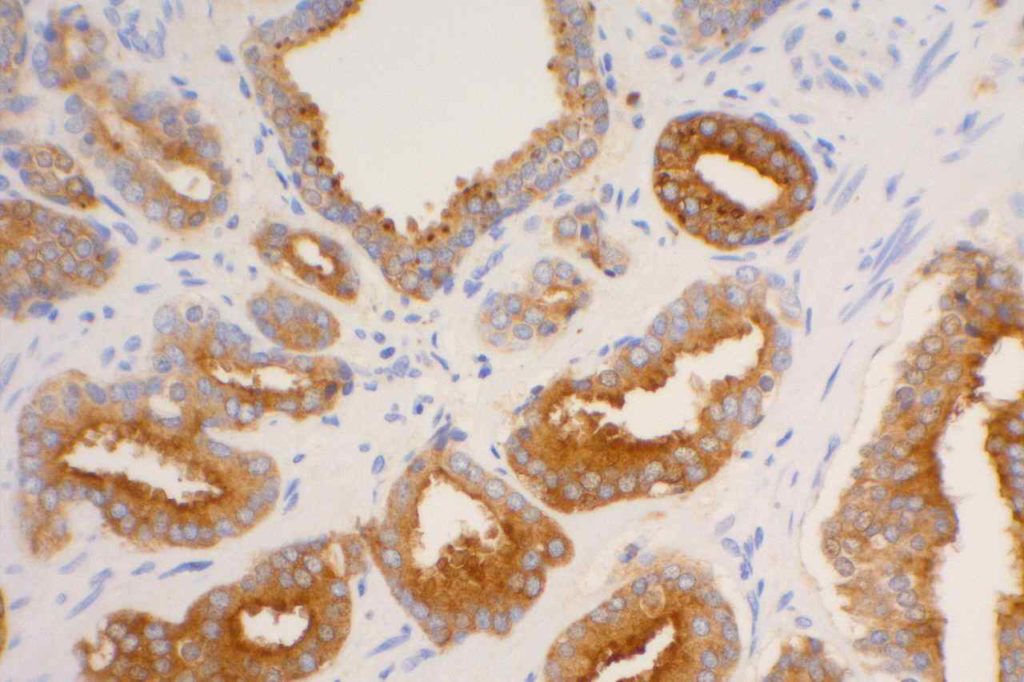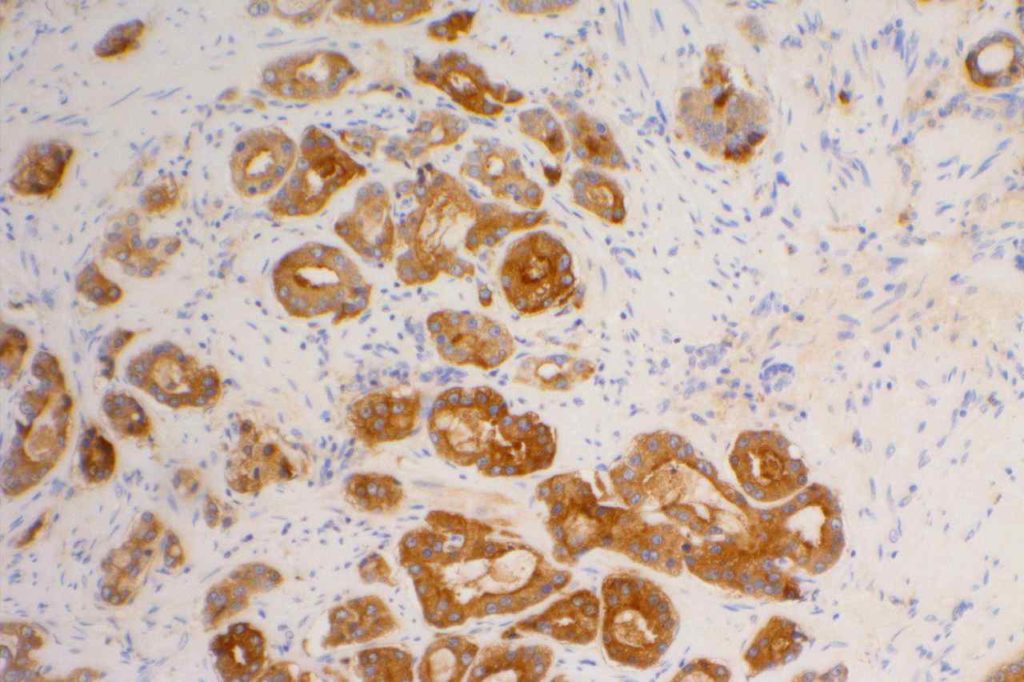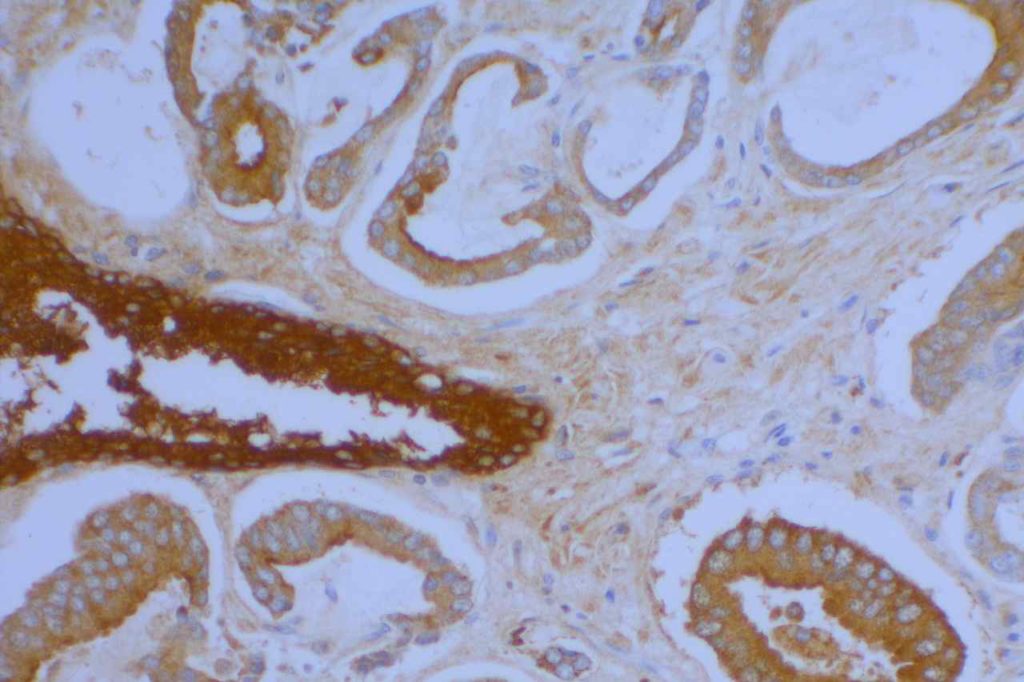Prostate Specific Antigen (PSA) is a marker used to identify tumors of prostate epithelium origin. It is generally considered to be >95% sensitive for prostate carcinoma, and has better specificity that PSAP. However, as the Gleason score increases, the sensitivity decreases. This is important because it is not usually the well-differentiated tumors that cause diagnostic confusion, but the poorly differentiated ones. In an article by Mohanty, PSA expression was in the range of 25% for poorly differentiated prostate carcinomas present in the bladder trigone area, but an article by Goldstein indicates the sensitivity may be closer to 50% in high Gleason score tumors.
Common expression patterns in carcinoma [Clin Cancer Res 2005;11(10) May 15, 2005]
|
Tumor
|
Expression (%)
|
|
Breast
|
0%
|
|
Colon
|
0%
|
|
Lung
|
<10%
|
|
Ovary
|
0%
|
|
Pancreas
|
0%
|
|
Stomach
|
<5%
|
|
Prostate
|
>95%
|
PSA expression and other markers as a function of Gleason score (Goldstein, NS)
|
Gleason Score
|
PSA
|
CK7
|
CK20
|
PAP
|
|
6 (N=25)
|
100%
|
0%
|
0%
|
100%
|
|
7 (N=50)
|
98%
|
0%
|
2%
|
100%
|
|
8 (N=54)
|
56%
|
0%
|
4%
|
65%
|
|
9 (N=58)
|
52%
|
10%
|
16%
|
74%
|
|
10 (N=38)
|
47%
|
13%
|
26%
|
61%
|
Prostate specific antigen (PSA), Prostatic acid phosphatase (PAP). Reactivity was defined as >25% positive cells.
Microscopic Images




References
Goldstein NS. Immunophenotypic characterization of 225 prostate adenocarcinomas with intermediate or high Gleason scores. Am J Clin Pathol. 2002;117(3):471–477. doi:10.1309/G6PR-Y774-X738-FG2K.
Mohanty SK, Smith SC, Chang E, et al. Evaluation of contemporary prostate and urothelial lineage biomarkers in a consecutive cohort of poorly differentiated bladder neck carcinomas. Am J Clin Pathol. 2014;142(2):173–183. doi:10.1309/AJCPK1OV6IMNPFGL.
Clin Cancer Res 2005;11(10) May 15, 2005
